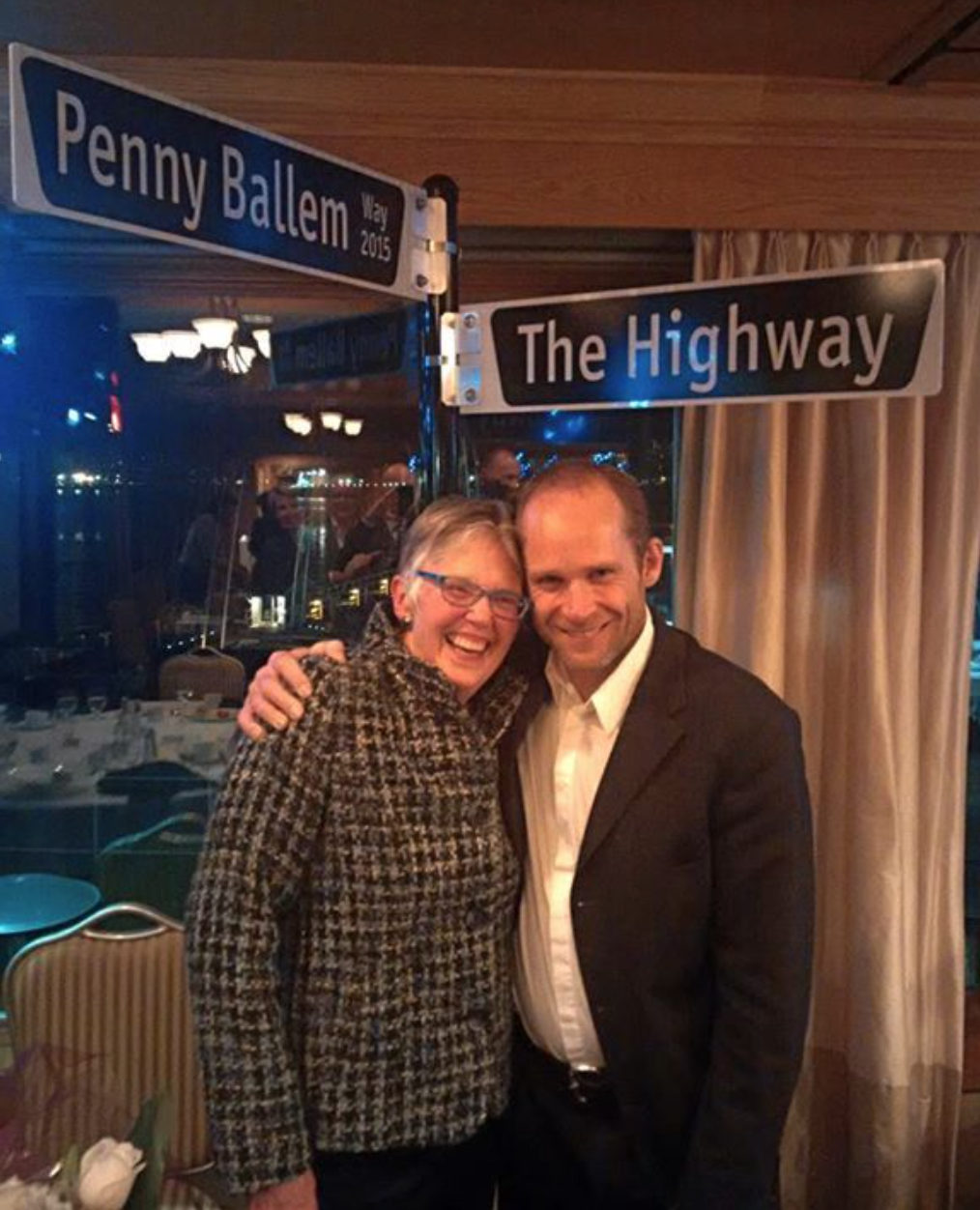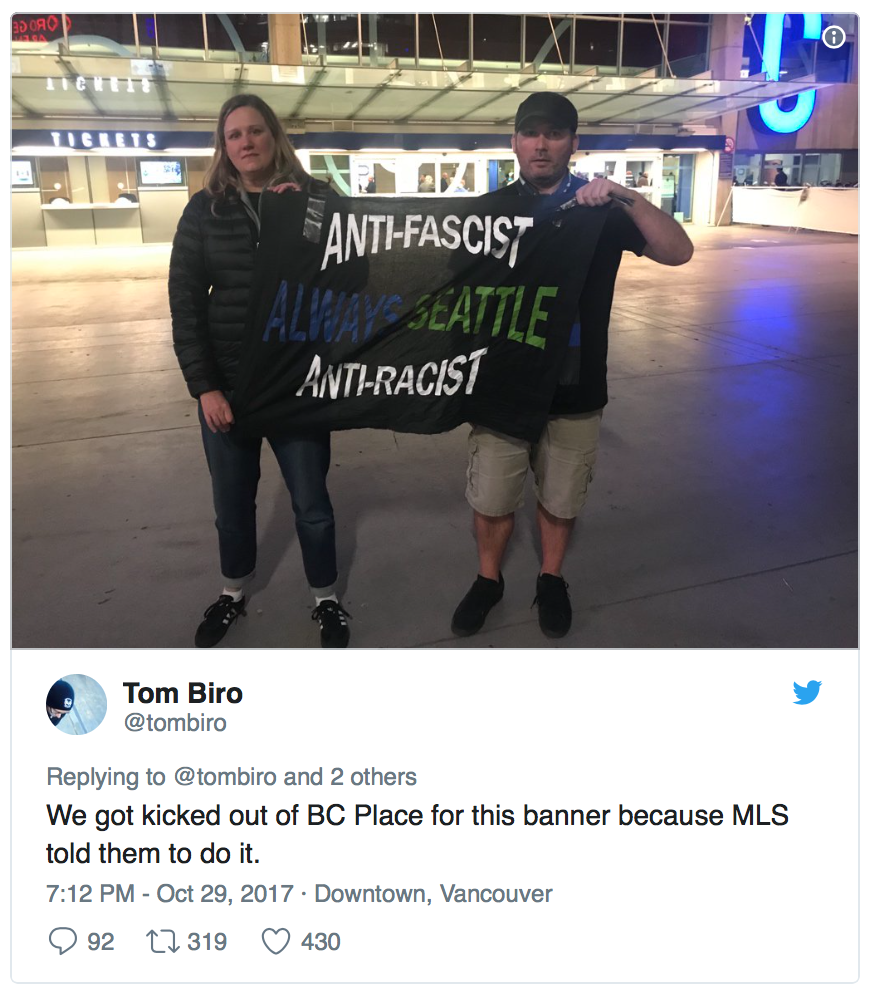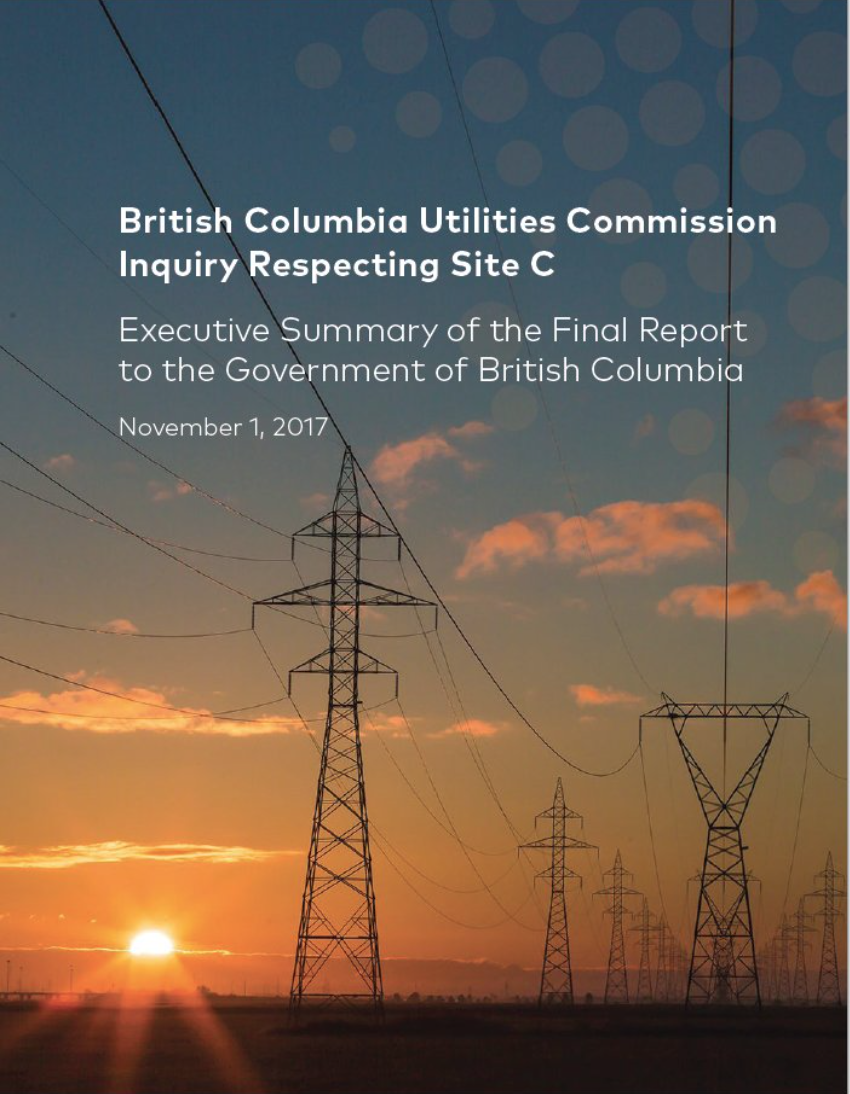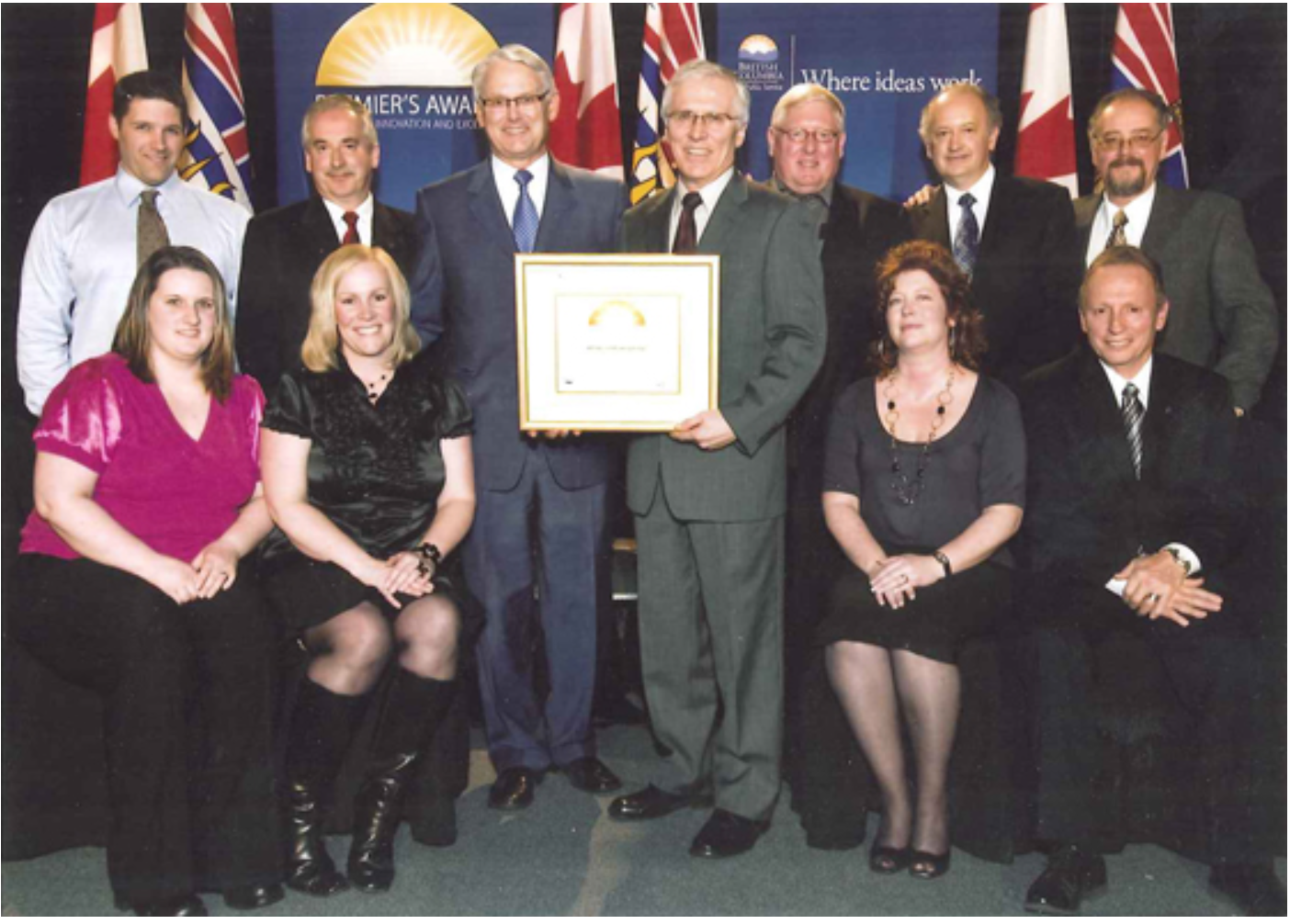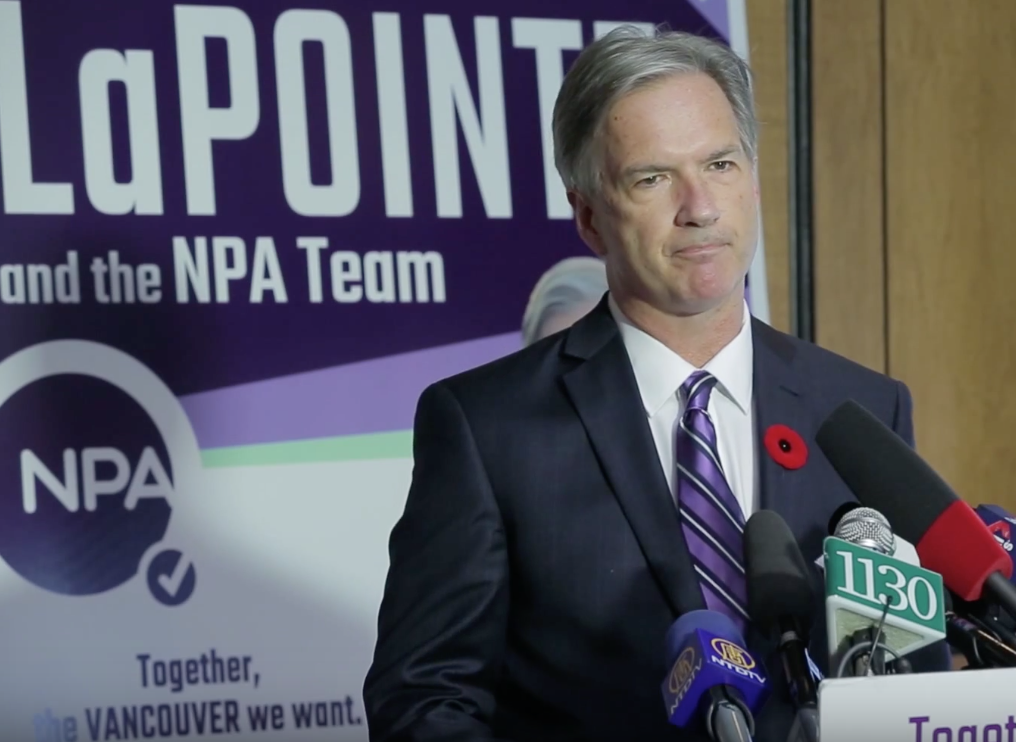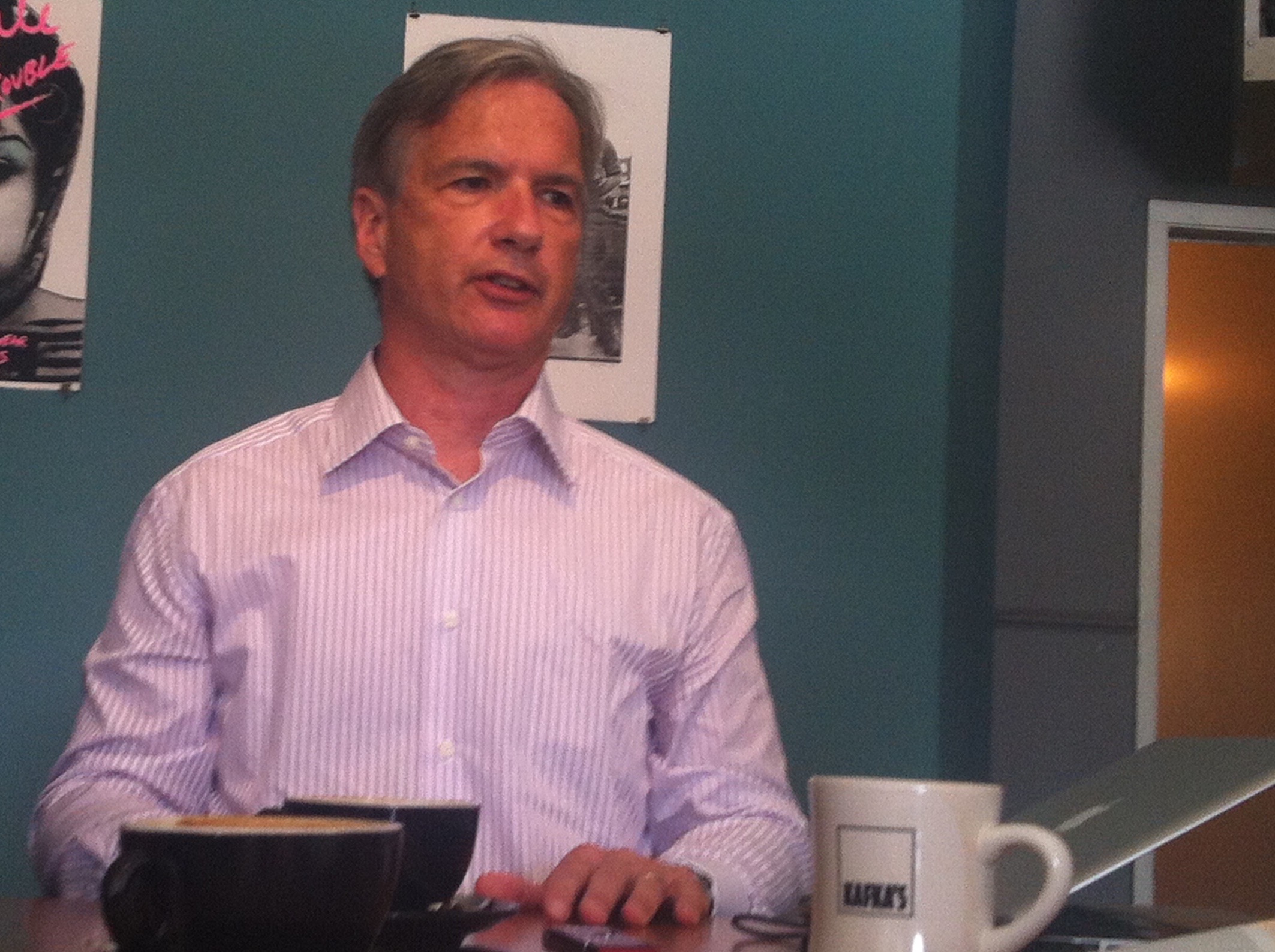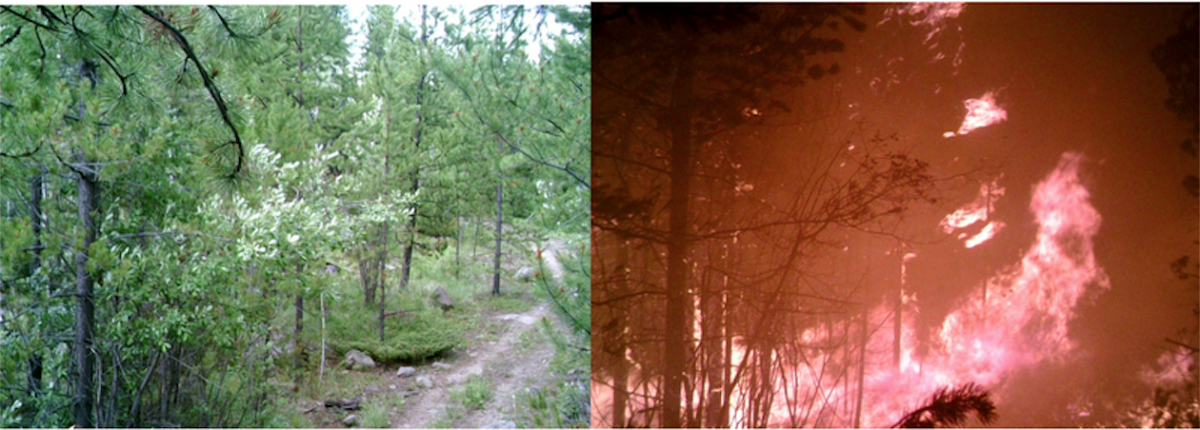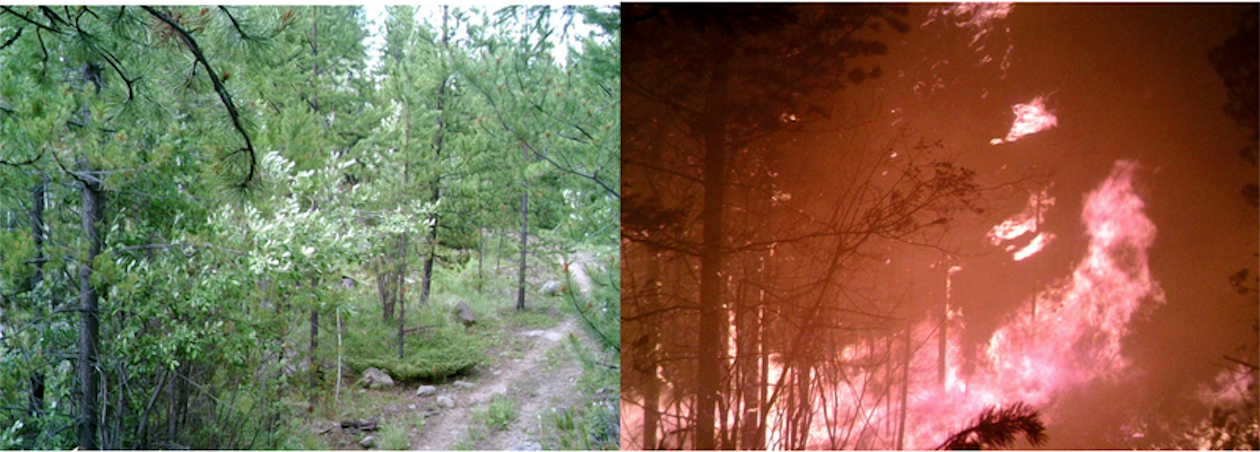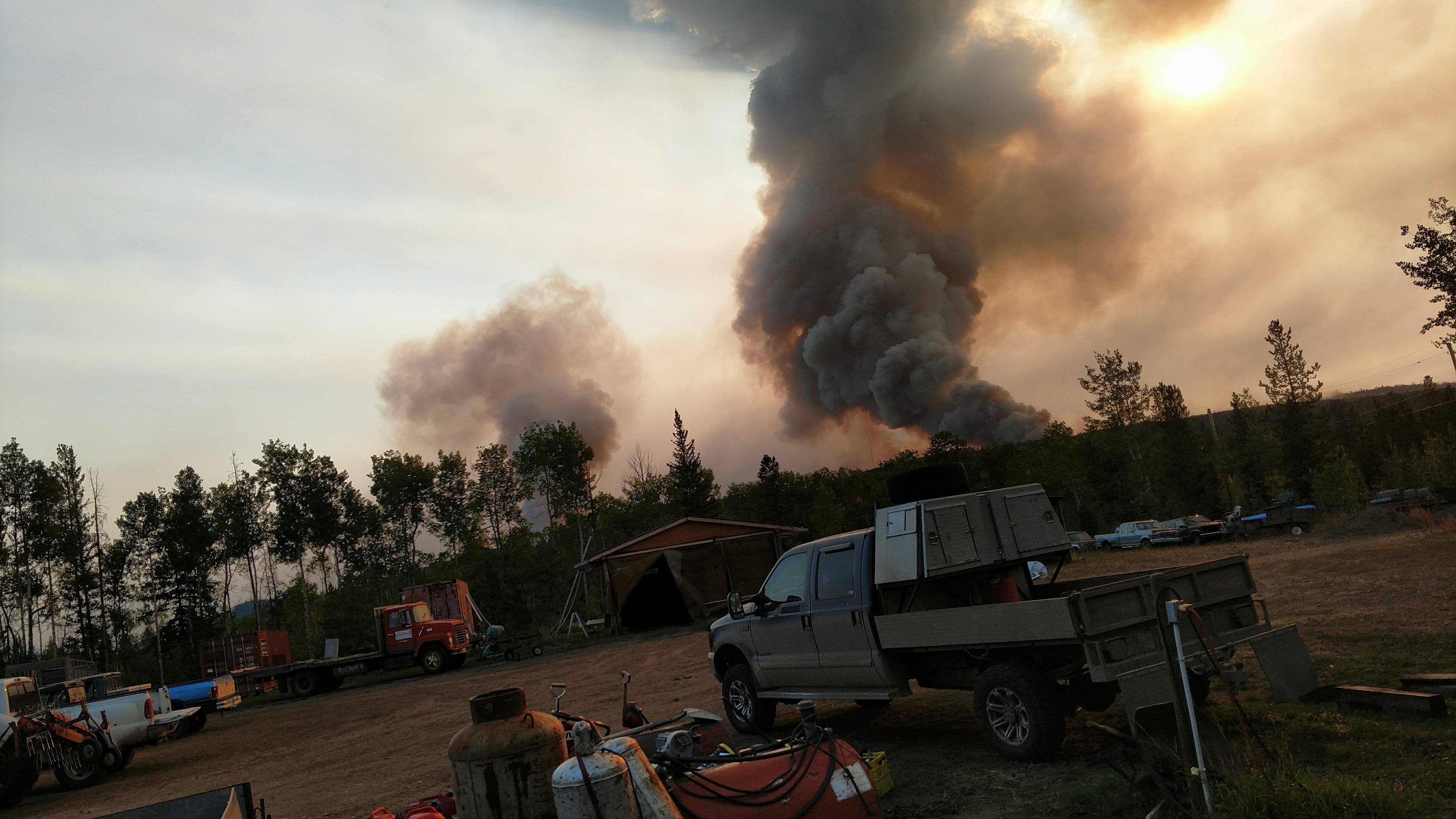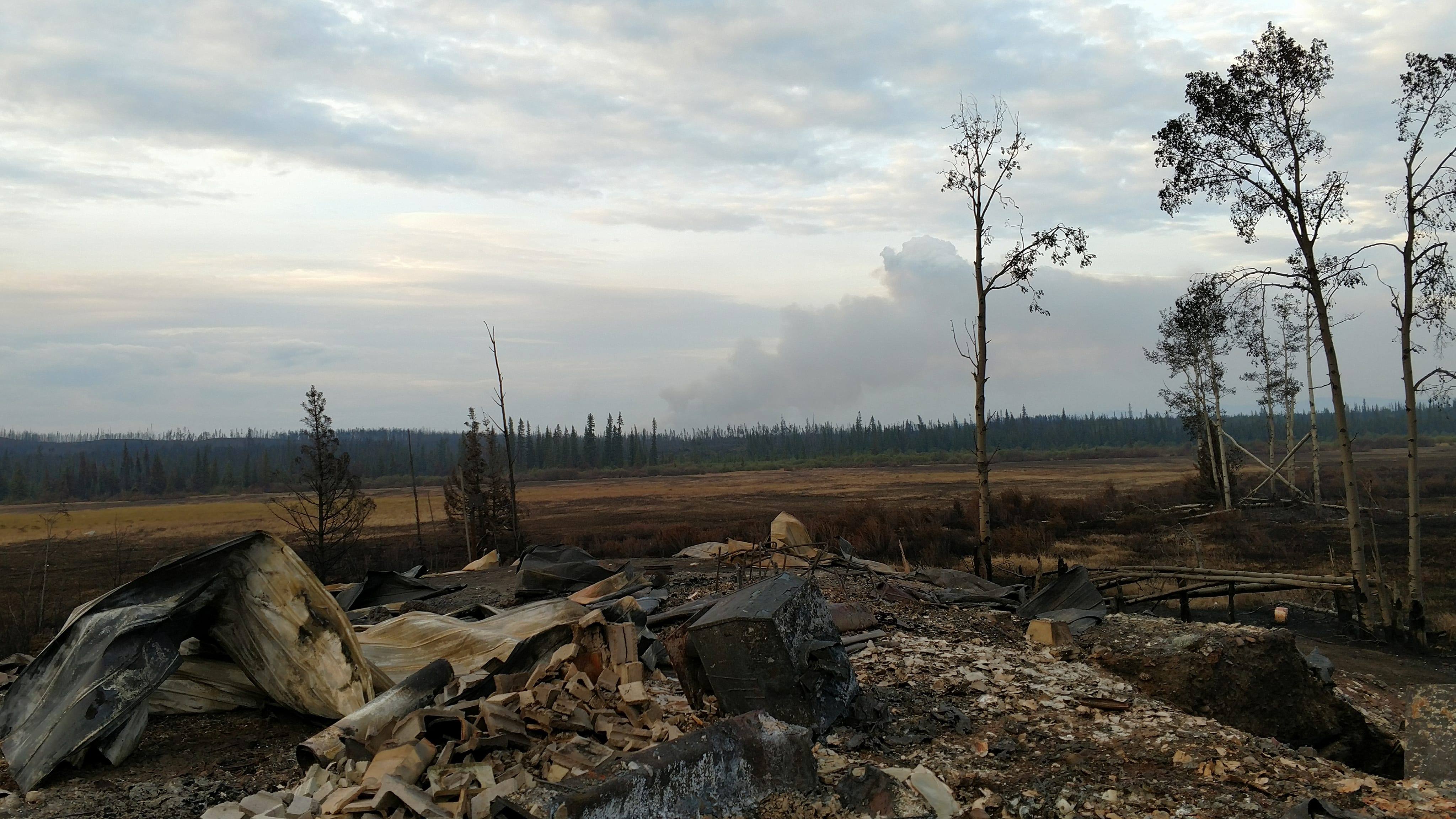Exclusive: Evergreen Line cost hikes revealed
Bob Mackin
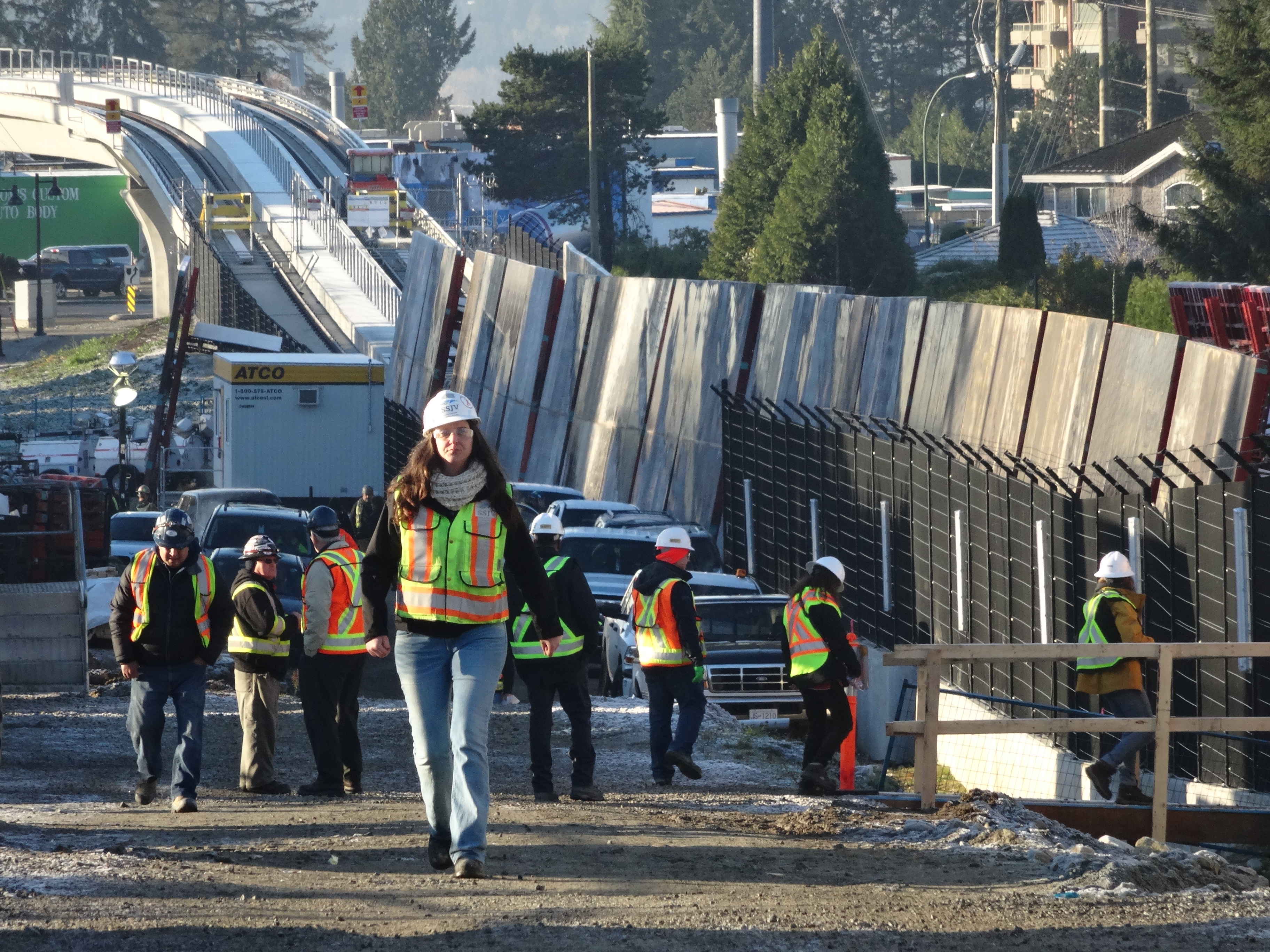
Evergreen Line construction site in November 2015 (Mackin)
British Columbia’s Ministry of Transportation and Infrastructure said it didn’t put a $3.24 million contract for an Evergreen Line bus loop and parking lot to public tender for the sake of efficiency.
Government policy states any construction contract worth $100,000 or more must be advertised publicly and subject to competition, unless only one contractor is ready or able to do the job or time does not permit public tendering.
Change order logs for the $1.43 billion SkyTrain extension obtained by theBreaker say a request was made in April 2013 to spend more, so as to make a temporary Port Moody bus loop and parking lot permanent. The contract change with scandal-plagued SNC-Lavalin was approved in October 2013.
According to a statement sent to theBreaker by the ministry’s spokesman, Ryan Jabs, the government “realized the contractor could modify their current construction activities and complete the final loop and parking (with curb and gutter, street lighting and final paving).
“This saved the cost of finishing the temporary facility, eliminated the extra costs for mobilizing a separate contractor, and avoided a delay in completing the permanent facility,” the transportation ministry statement said.
The additional cost for the bus loop and parking lot was the biggest line item in a list of $11 million in changes that the BC Liberals fought to keep secret before and after the May election.
The dollar figures were censored from the documents that were originally released in early 2016 under the freedom of information law. On July 26, the week after the NDP’s John Horgan was sworn-in as premier, a government lawyer said there was no legal reason to withhold the dollar figures from the public. SNC-Lavalin, which held the main $889 million contract for the Evergreen Line, remained opposed. An adjudicator with the Office of the Information and Privacy Commissioner finally ordered full disclosure on Oct. 12.
theBreaker can now tell you about these additional costs for the Evergeen Line:

Additional Evergreen Line work to fix sinkholes by Seaview in Port Moody in October 2015. (Mackin)
- More than a million dollars extra was spent on changes for utility conflicts with Telus ($860,128) and BC Hydro ($363,891). The ministry said utility mapping was provided before the contract was awarded, but the drawings from land owners did not always reflect the final as-constructed location;
- Guideway parapet noise barriers were installed for $777,197. The ministry said this was not included in the contract “because the discussions with the cities and the community were still ongoing at the time the contract was tendered.”
- Flagging at Seaview ($306,916) and minor roadworks and paving changes ($327,901);
- Retaining walls at Port Moody Inlet Centre station ($278,637) and the Burquitlam propulsion power substation ($193,361). “In both cases, the province determined these walls were necessary after construction was already underway, and it was more cost efficient for the contractor to install the walls while the power stations were being built,” said the government statement;
- Another $378,980 was spent to remove hydrocarbon contamination from Hoy Creek, after Coquitlam Park and Ride extension construction led to pollution from an old auto wrecking business.
- The province also spent $148,214 on attaching public art to infrastructure because, it said, community public art committees that selected the art were set-up after the contract was signed.
The ministry said $19 million was spent on changes for items not included in the original contract and $17 million on unanticipated items.
Sinkholes and tunnel trouble under Port Moody and Coquitlam delayed completion by six months. It finally opened Dec. 2, 2016, yet, the government still claims the $1.43 billion project came in $79 million under budget.
On opening day, Premier Christy Clark cut the ribbon, with Port Moody-Coquitlam MLA Linda Reimer and transit and taxis minister Peter Fassbender. MLAs Richard T. Lee (Burnaby North) and Doug Bing (Maple Ridge-Pitt Meadows) also attended. The transit megaproject, however, did little to help the BC Liberals remain in power. Reimer, Fassbender, Bing and Lee lost their seats to NDP opponents on May 9. The Green-supported NDP minority toppled the Clark government in a June 29 confidence vote. Clark resigned as leader and MLA the next month.

SNC-Lavalin’s Jeff Spruston (LinkedIn)
Why was there an 18-month legal battle over Evergreen Line costs, when another high profile infrastructure project isn’t keeping secrets?
The website for Victoria’s troubled Johnson Street Bridge project contains proactively released invoices from contractors PCL Constructors Westcoast and MMM Group.
While BC Liberal leadership candidate Todd Stone was Clark’s transportation minister, the government claimed disclosure of the cost of contract changes would harm both the government and SNC-Lavalin financially.
Government lawyer Troy Taillefer informed the OIPC and theBreaker on July 26 that the new government dropped opposition to disclosure because there was no legal basis for maintaining secrecy of costs. Various legal orders have held that the public has a right to know about contracts negotiated between governments and companies that supply goods and services to governments.
SNC-Lavalin project manager Jeff Spruston claimed, in a 97-word submission to an OIPC inquiry, that “disclosure of any of our pricing information (commercially sensitive information) will inform our competitors of some of our pricing details and may compromise our competitive advantage.
“We are presently bidding work similar to the Evergreen Line Rapid Transit Project in at least three other active procurements within Canada,” Spruston wrote.
In her Oct. 12 order, OIPC adjudicator Meganne Cameron rejected SNC-Lavalin’s pleading as “vague, speculative and unsupported by evidence.”
She ordered disclosure of the records by Nov. 23. But the NDP government delivered them almost a month early, on Oct. 26.
Spruston did not respond for comment.
Support theBreaker.news for as low as $2 a month on Patreon. Find out how. Click here.
EGRT Change Orders Mackin by BobMackin on Scribd
Bob Mackin [caption id="attachment_5160" align="alignright" width="654"] Evergreen Line






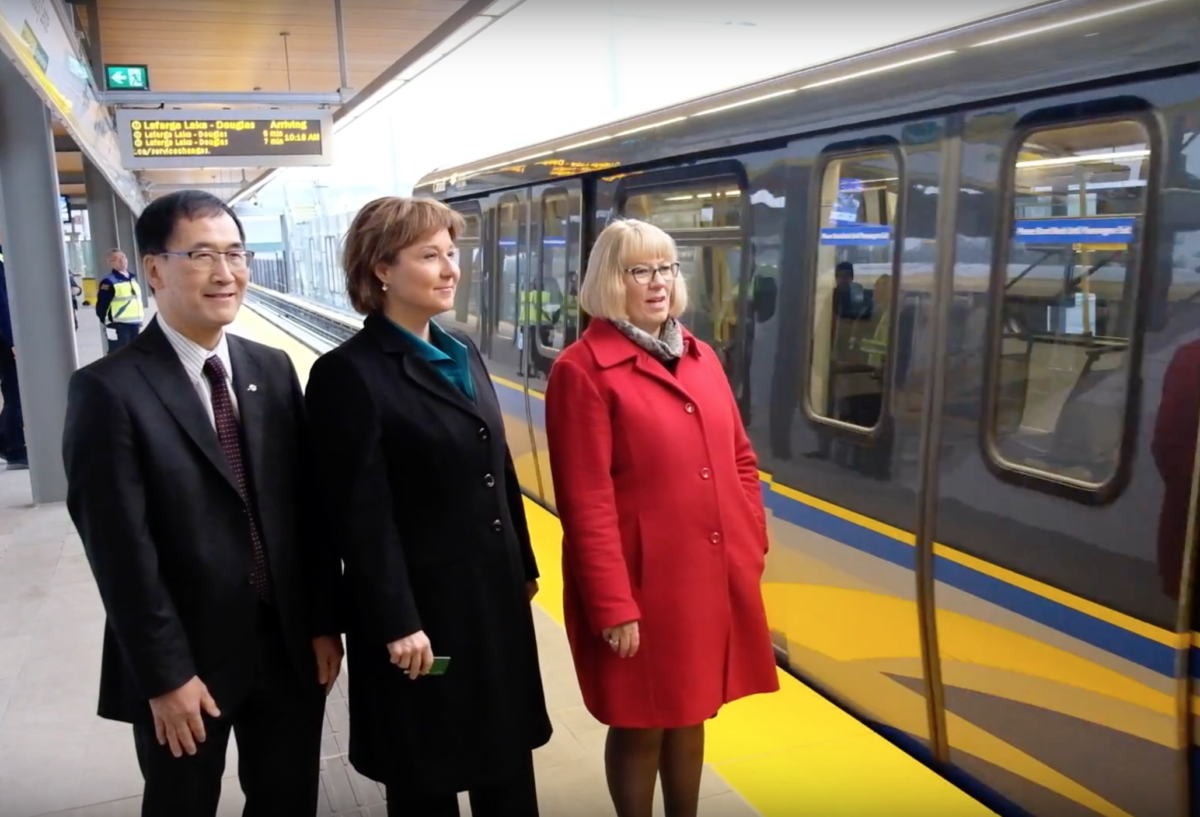
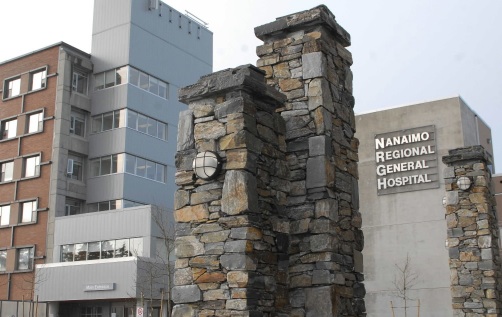

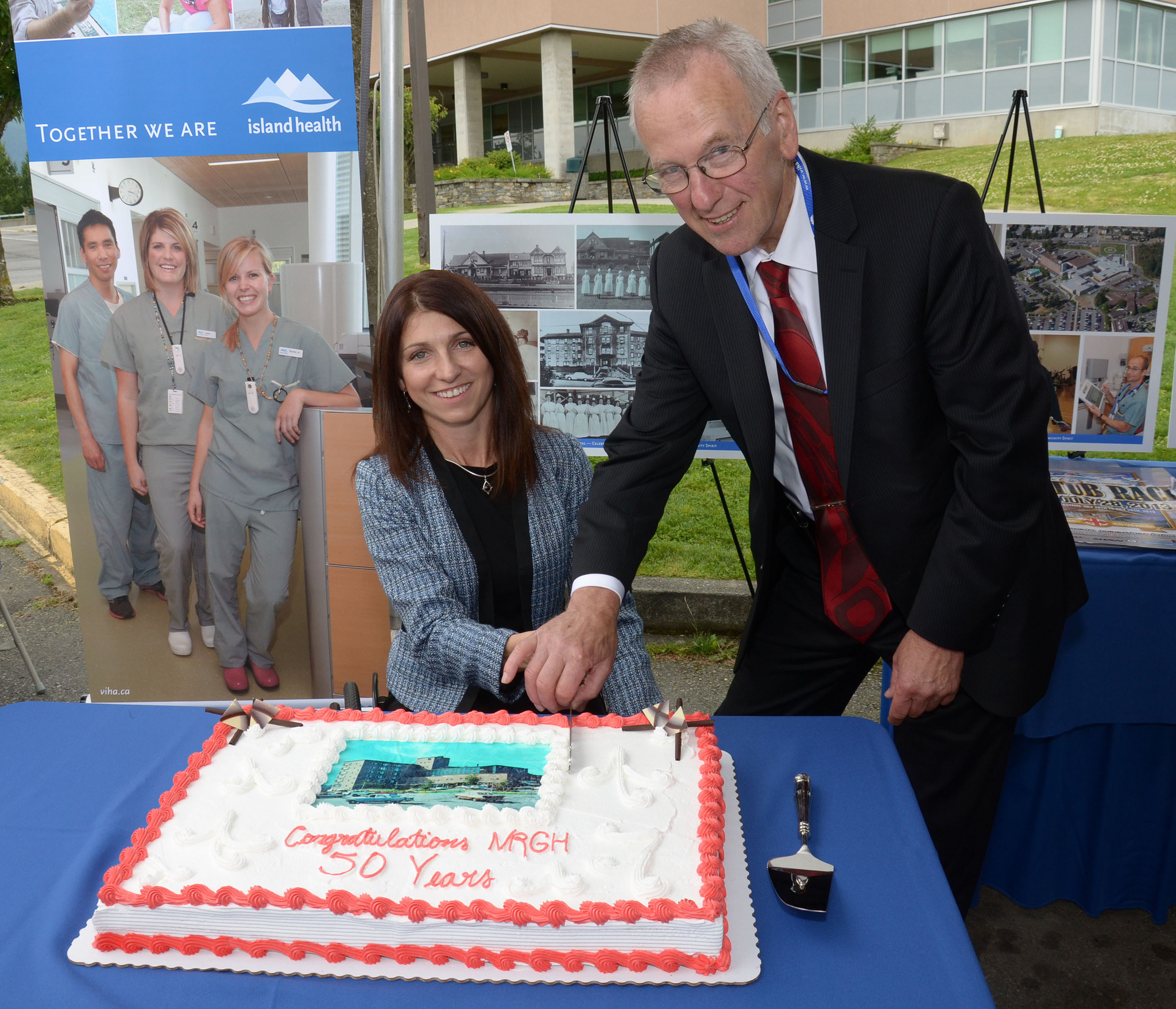
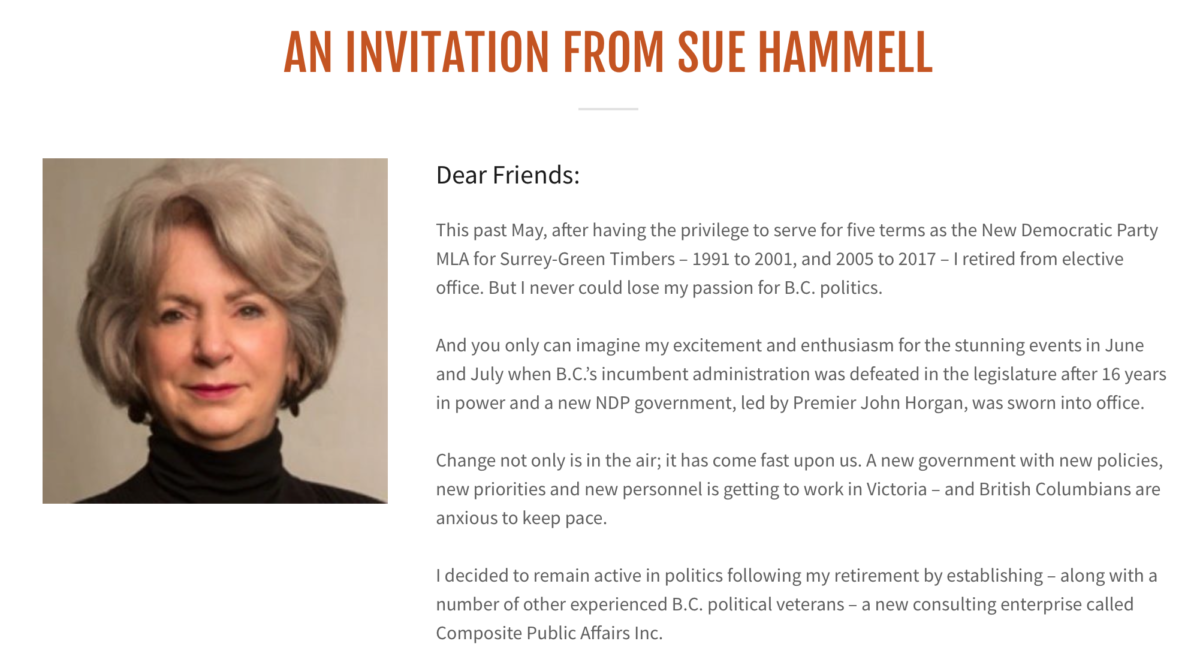
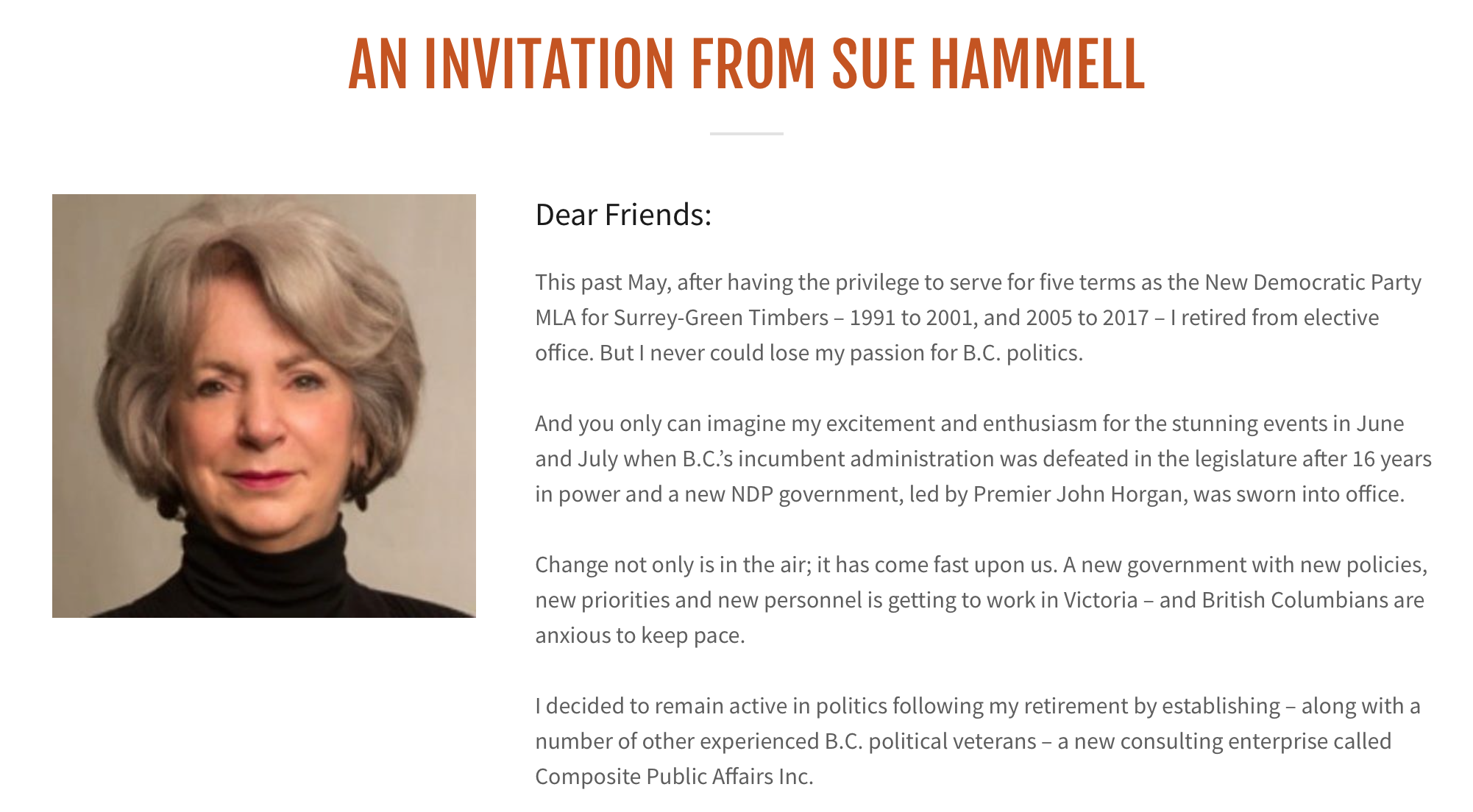
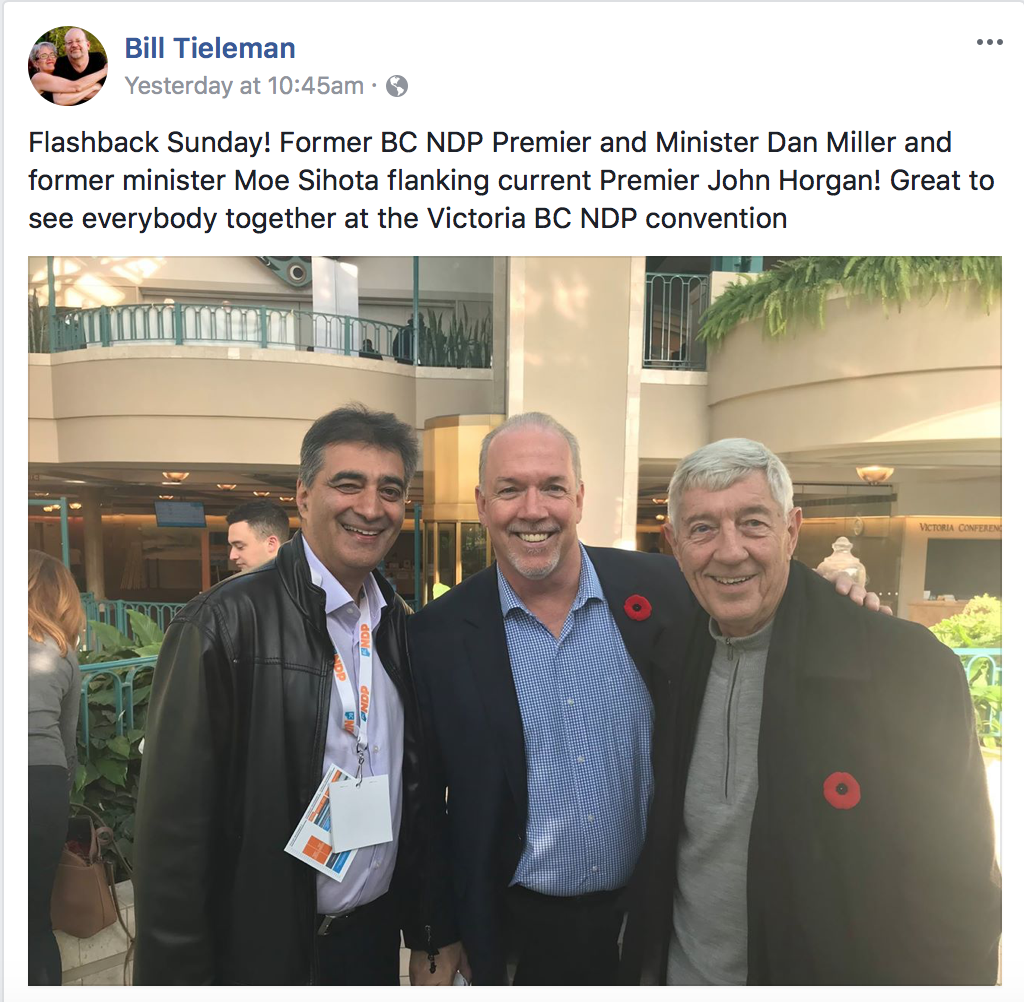

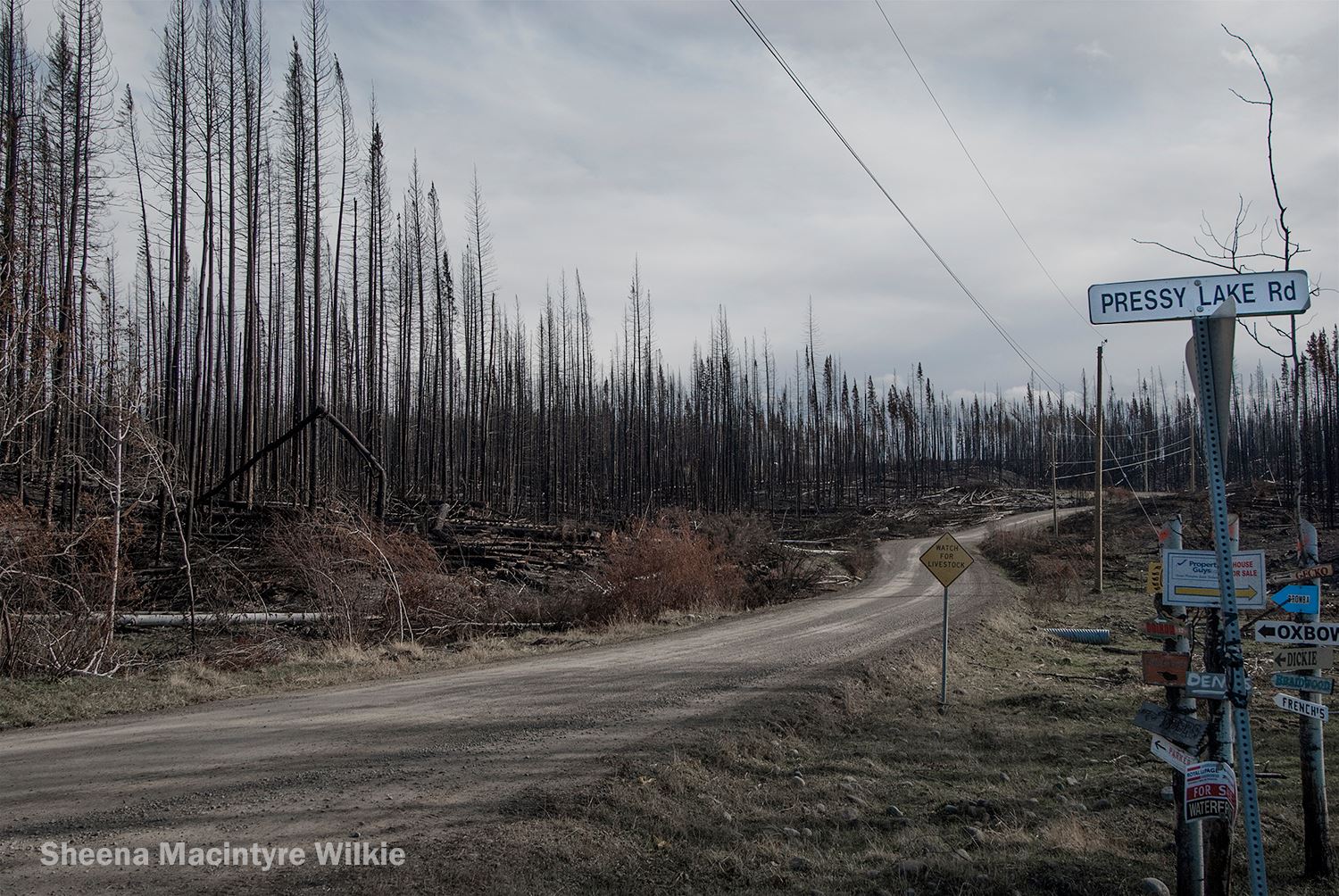
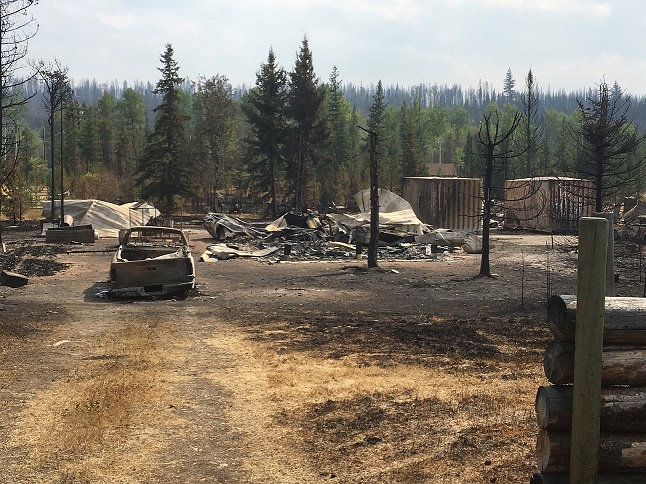
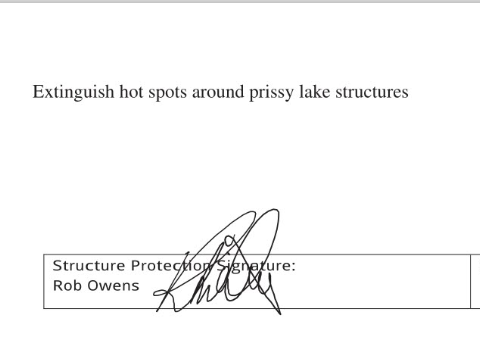

 This is a Fifth of November certain to remember.
This is a Fifth of November certain to remember. 
